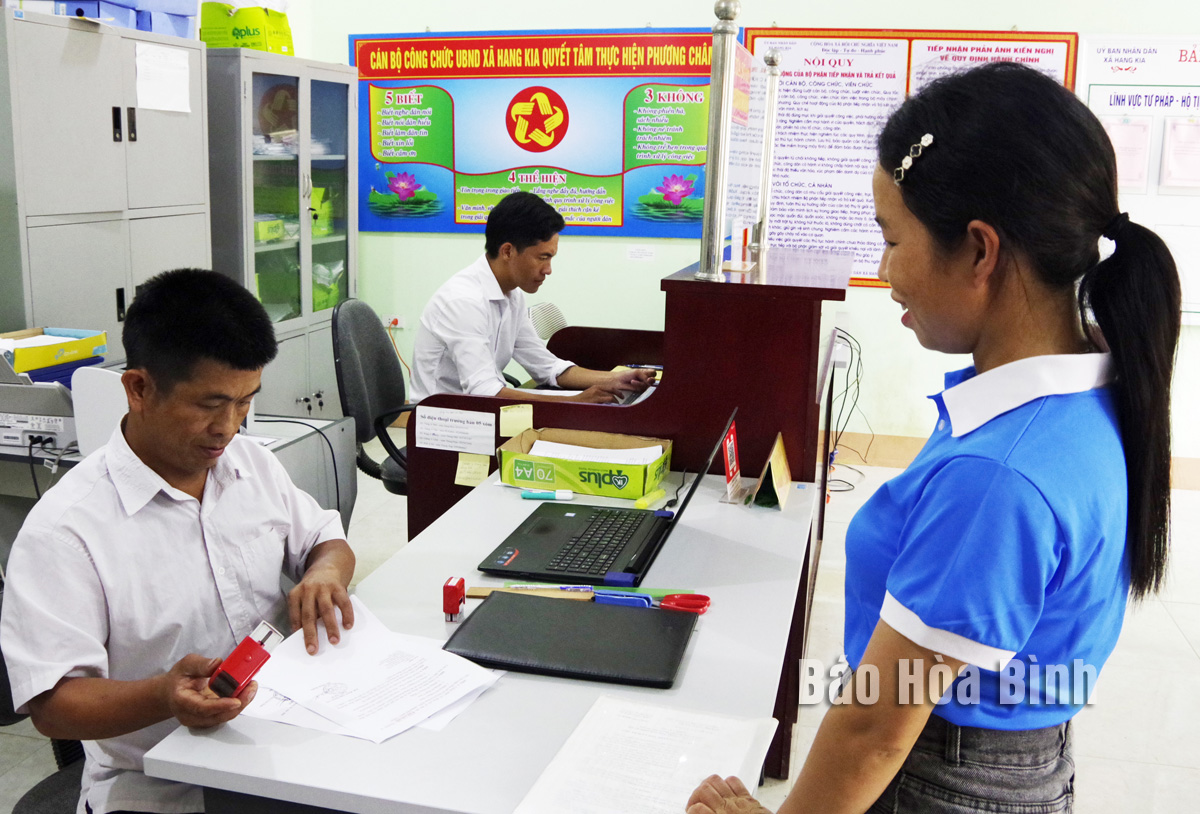
Hang Kia commune has made significant improvements in local governance to better serve its citizens. In the past, the local administration's ability to manage and lead was modest, but over the last five years, through the implementation of Provincial Project No. 09/DA-TU, the competence of local officials has been enhanced. This has resulted in improved state management and better public service.

Hang Kia staffs have been proactive in guiding citizens through administrative procedures.
The commune, with a predominantly ethnic minority population,
recognised that access to information was a challenge for many. To address
this, local staff have been proactive in guiding citizens through
administrative procedures.
Administrative reform is a priority for Hang Kia, with a
dedicated reception centre equipped with modern facilities to serve the public.
All procedures are clearly displayed for easy access, and the commune has
embraced digital transformation by integrating electronic systems for handling
administrative tasks.
In the first nine months of 2024, over 230 administrative
cases were processed, with 100% completed on time, mostly through electronic
systems.
Deputy
Chairman of the commune People's Committee Vang A Pao emphasised that the use
of technology has streamlined the process, creating a more efficient and
citizen-friendly environment for doing administrative tasks.
The Standing Board of the Hoa Binh provincial Party Committee has agreed in principle on a proposal by the Standing Board of the Party Committee of Hoa Binh city to gather feedback on the city’s 1:2000 zoning plan, which forms part of its broader urban development strategy.
Hoa Binh province has made notable progress in public administration reform and digital government development, with the satisfaction index among citizens and businesses reaching over 84%, according to recent government evaluations.
Thanks to great efforts by local authorities in recent times, the governance and public administration performance of Mai Chau district has been significantly improved.
In the afternoon of June 6, the Party Committee, the People's Council, the People's Committee and the Fatherland Front of Lac Son district solemnly held a meeting to celebrate the 139th anniversary of the district's founding (1886–2025) and the 79th anniversary of the establishment of the district's Party Committee (1946–2025). There was the attendance of Mr. Bui Van Thang, the Vice Chairman of the Provincial People's Council; Mr. Quach Tat Liem, the Vice Chairman of the Provincial People's Committee; Ms. Dang Bich Ngoc, the Deputy Head of the National Assembly Delegation of the province; as well as the former leaders of the province and district through various periods, who are the natives of the district.
Implementing the Politburo’s Resolution No. 57-NQ/TW on breakthroughs in science – technology, innovation, and digital transformation is a golden opportunity for the northern mountainous province of Hoa Binh to renew growth model, improve competitive edge and shorten digital gap.
Resolution 57-NQ/TW, issued by the Politburo on December 22, 2024, identifies sci-tech, innovation, and digital transformation as strategic breakthroughs to build a developed and prosperous nation. In Hoa Binh province, this spirit is not just a slogan, it’s being put into action through concrete initiatives that form a "new development triangle”: digital citizenship, digital economy, and digital administration.



